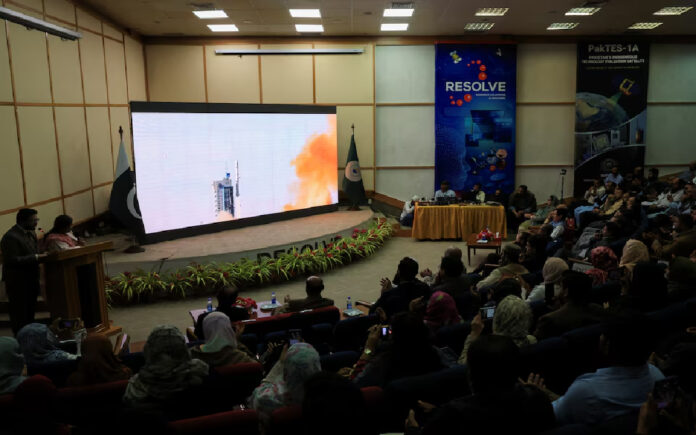Karachi: Pakistan successfully launched its first domestically developed observation satellite, PRSC-EO1, on Friday from the Jiuquan Satellite Launch Centre in northern China, according to the Space and Upper Atmosphere Research Commission (SUPARCO).
The PRSC-EO1 is designed to enhance Pakistan’s ability to monitor natural resources, respond to disasters, and support urban planning and agricultural development. “This marks a significant milestone in our nation’s growing capabilities in space science and technology,” Prime Minister Shehbaz Sharif said.
The satellite, equipped with advanced electro-optical sensors, will collect high-resolution data and imagery of Earth’s surface by detecting reflected sunlight and emitted radiation. This technology promises to bolster decision-making in various sectors critical to Pakistan’s development.
China’s Long March-2D carrier rocket also delivered two additional satellites, Tianlu-1 and Blue Carbon 1, into orbit during the same mission, according to the China Aerospace Science and Technology Corporation.
Also Read | National Security vs. Free Speech: U.S. Supreme Court Rules on TikTok Ban
The launch aligns with the rapid growth of the Earth observation satellite market, which currently stands at $5 billion. Market analysts predict the sector will exceed $8 billion by 2033, highlighting its growing significance. Nations such as the United States, China, and India have prioritized developing satellite constellations for Earth mapping. Notably, Indian startup Pixxel recently launched the country’s first privately built satellite constellation.



